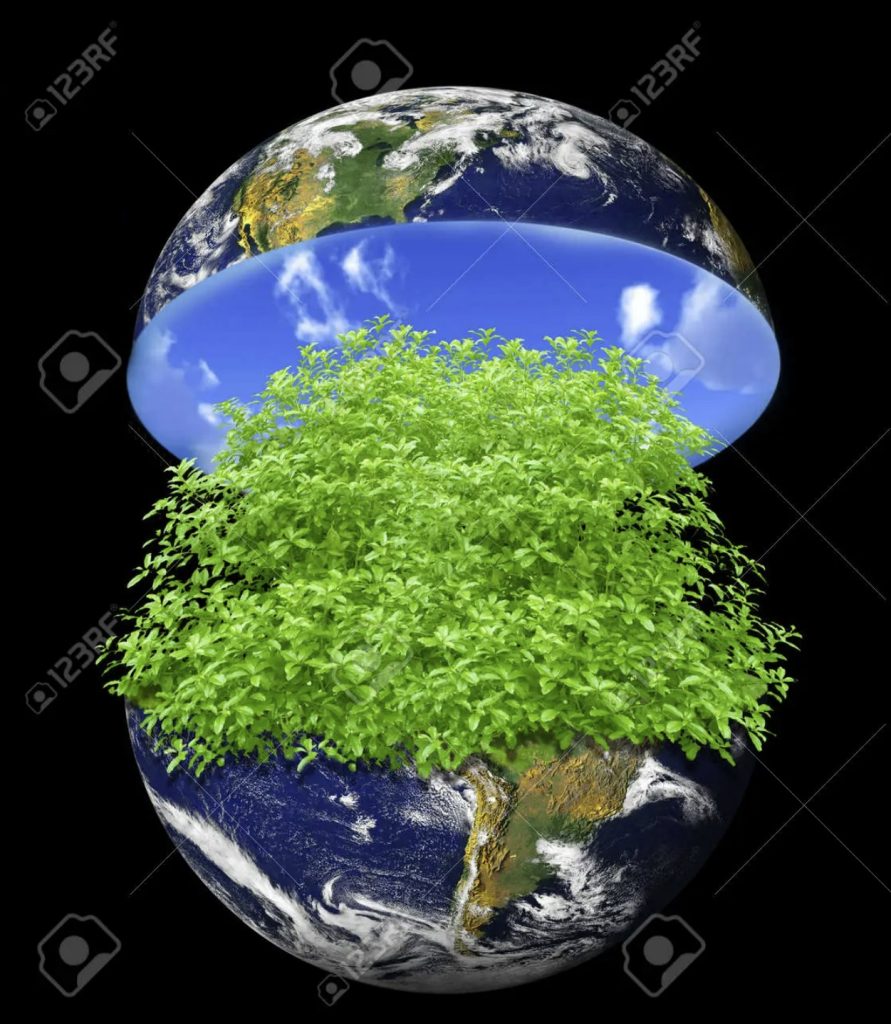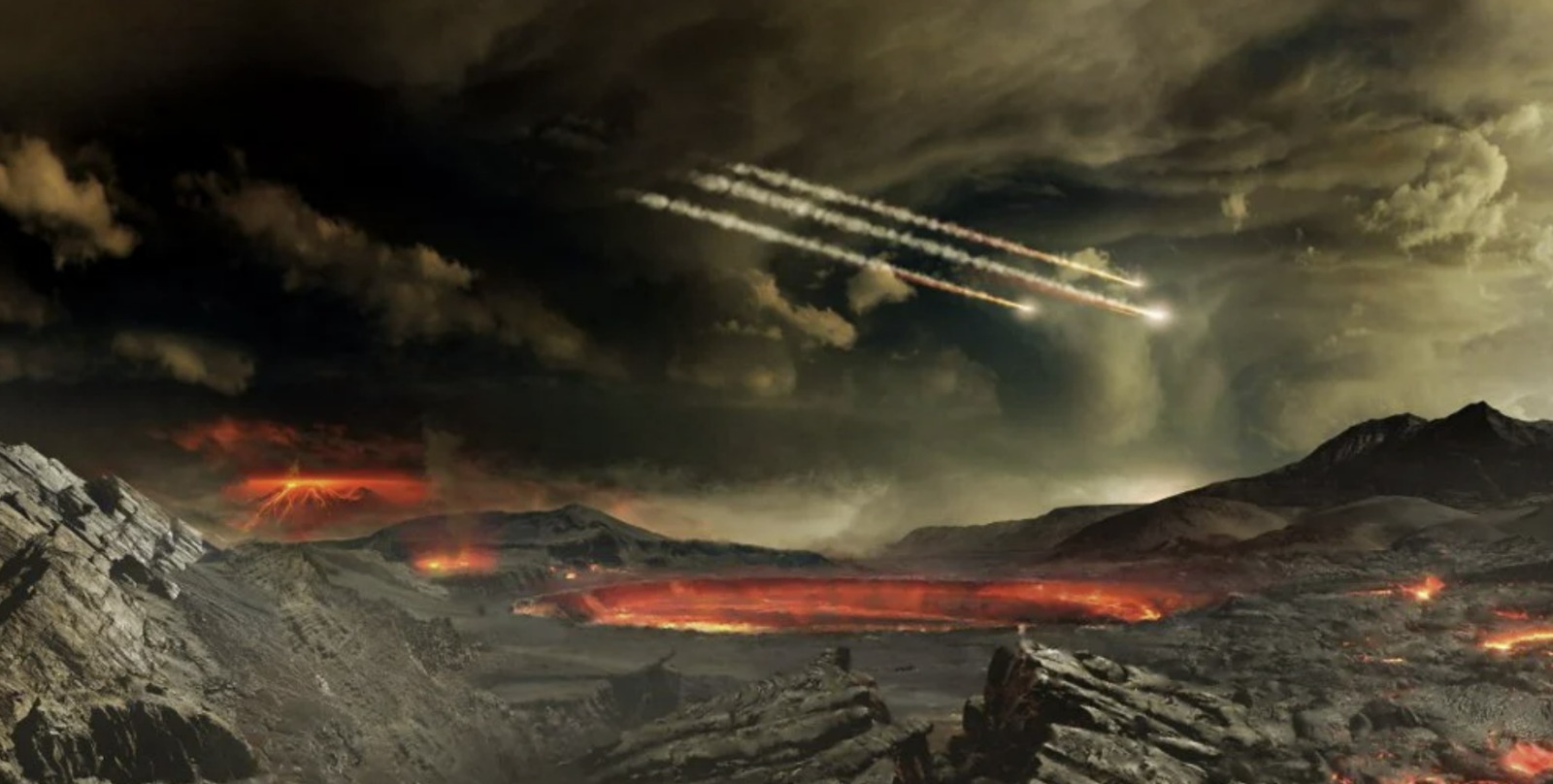We are told every day that we have raped the planet and are running out of resources.
For example, July 28th was publicized around the world as Earth Overshoot Day. The day’s promoter, the Global Footprint Network. explains on its webpage (https://www.overshootday.org/) that “Earth Overshoot Day, marks the date when humanity has used all the biological resources that Earth regenerates during the entire year.”

Topping that, a few weeks ago the World Wildlife Fund (WWF) issued a report warning that “the human race is plundering the planet at a pace that outstrips its capacity to support life.”
Reports England’s The Guardian, “the report warns that either consumption rates are dramatically and rapidly lowered or the planet will no longer be able to sustain its growing population.” In other words, stop consuming before we kill ourselves and everything around us.
Howard Bloom, the scientific thinker touted by Britain’s Channel4 TV as the Einstein, Newton, Darwin, and Freud of the 21st century, disagrees. Dramatically. Says Bloom, “we are not running out of resources, we are running out of imagination.”
Howard Bloom is widely considered a scientific genius. He is the author of seven books. He’s been published in The Washington Post, The Wall Street Journal, Wired, Psychology Today, and the Scientific American. And he’s been published in scholarly journals or lectured at scholarly conferences in eleven different scientific fields, from quantum physics and cosmology to evolutionary biology, psychology neuroscience, information science and biopolitics. Why would a scientific thinker of this breadth disagree so profoundly with mainstream scientific thought?
Bloom explains that, “Once upon a time, almost four billion years ago, there was a poison pill of stone. A planet of disaster. A planet of climate catastrophe. But a grand enterprise took on the challenge of harnessing the planet’s cataclysms and turning the hostile rock green. That enterprise was life.”
“Life worked by breaking the rules and bucking the status quo,” says Bloom.

“Life took the poison of phosphorus and turned it into an energy-storage device. Life kidnapped, seduced, and recruited atoms of sulfur dioxide from the seawater and used them as electron acceptors. Life grabbed virgin methane and hydrogen sulphide emerging from sea floor seeps and used them as food and fuel. Life invented the longest molecules this planet had ever seen, the 8.5-billion-atom necklaces of genomes. Then life invented ways to manically mass produce these beyond-belief complicated strings of genes. What’s more, life invented cell membranes and the cell itself. And cell membranes safeguarded a tiny walled-off pool of the waters that life liked the most, waters just a bit less salty than the seas around them. In other words, life defied the rules of nature and, in the process, expanded nature’s powers.”
Says Bloom with passion, “Today there are billions of poison pills of stone above our head just waiting to be gardened and greened. Just waiting for the grand enterprise of life.”
In other words, earth should not be life’s only resource base. Adds Bloom, “Above our heads are asteroids with more raw material than all the valuable metals humans have ever mined.”
For example, to replace all the gasoline powered automobiles on earth with electric vehicles, we will need vast amounts of platinum group metals–ruthenium, rhodium, palladium, osmium, iridium and platinum itself. That metal comes from two sources, South Africa and Russia. So its availability could easily be choked off by geopolitical conflict.

But a single asteroid, Davida, has all the platinum metals we will ever need to turn our economy green. And, says MIT, “one 500-meter-wide platinum-rich asteroid could contain nearly 175 times the annual global platinum output, or 1.5 times the known world reserves of platinum group metals.”
The same goes for cobalt and for many of the other raw materials essential to wind turbines, batteries, electric vehicles, and the other elements of a green economy. Using earth resources, we could easily run out. But if we tap the poison pills of stone in the sky, the green revolution can expand without end.
Does nature want us to use the rocky gravity balls in the heavens? Does she want us to bring these stones into the sphere of life? Or is this just one more “rape” of mother nature?
Bloom reveals that, “Right now bacteria twelve miles beneath our feet, chemolithoautrophs, are turning raw rock into food and fuel for the enterprise of life. Are chemolithoautrophs rapists? Or are they nature incarnate? Nature sees resources where we see wastelands.”
Adds Bloom, “For every ounce of life-stuff on this planet there are 200 million ounces of dead stuff just waiting to be kidnapped, seduced, and recruited into the bioprocess, into the web of life. Again, we are not running out of resources, we are running out of imagination.”
But, says Bloom, we have a special obligation to the biosphere, to ecosystems, and to the grand enterprise of life. “We are not the gods of research and development. Microorganisms can do research and development as fast as we can. For proof, look at how swiftly the Covid virus is challenging us with new mutations.
“But there’s one thing that only the human species can do. We can break out of the gravity well. We can escape the atmosphere and go to bodies in the heavens. We can take life to the poison pills of stone above our heads.”
Bloom says, “Nature has given us a mandate. To take ecosystems beyond the sky. To take life to new hostile balls of stone in which it can thrive. It’s our job to turn the dead balls of rock beyond the heavens into the stuff of life.”
Concludes Bloom, “We have a mandate from nature. Garden the Solar System and Green the Galaxy. Bring space to life by bringing life to space.”
References:
Gaya Herrington, Update to limits to growth: Comparing the World3 model with empirical data, Journal of Industrial Ecology, First published: 03 November 2020 https://doi.org/10.1111/jiec.13084,https://onlinelibrary.wiley.com/doi/abs/10.1111/jiec.13084
https://web.mit.edu/12.000/www/m2016/finalwebsite/solutions/asteroids.html
Peter Zeihan, The End of the World is Just the Beginning: Mapping the Collapse of Globalization, Harper Business, 2022
Stewart Atkinson is a writer in Texas.
